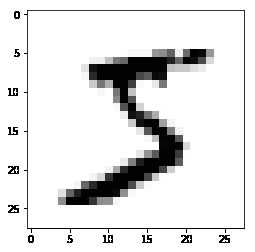5.1 卷积神经网络简介
Posted shayue
tags:
篇首语:本文由小常识网(cha138.com)小编为大家整理,主要介绍了5.1 卷积神经网络简介相关的知识,希望对你有一定的参考价值。
5-1 实例化一个小型的卷积神经网络
from keras import layers
from keras import modelsUsing TensorFlow backend.model = models.Sequential()
model.add(layers.Conv2D(32, (3, 3), activation=‘relu‘, input_shape = (28, 28, 1)))
model.add(layers.MaxPooling2D((2,2)))
model.add(layers.Conv2D(64, (3, 3), activation=‘relu‘))
model.add(layers.MaxPooling2D((2,2)))
model.add(layers.Conv2D(64, (3, 3), activation=‘relu‘))model.summary()_________________________________________________________________
Layer (type) Output Shape Param #
=================================================================
conv2d_1 (Conv2D) (None, 26, 26, 32) 320
_________________________________________________________________
max_pooling2d_1 (MaxPooling2 (None, 13, 13, 32) 0
_________________________________________________________________
conv2d_2 (Conv2D) (None, 11, 11, 64) 18496
_________________________________________________________________
max_pooling2d_2 (MaxPooling2 (None, 5, 5, 64) 0
_________________________________________________________________
conv2d_3 (Conv2D) (None, 3, 3, 64) 36928
=================================================================
Total params: 55,744
Trainable params: 55,744
Non-trainable params: 0
_________________________________________________________________5-2 在卷积神经网络上添加分类器
# 将3D输出展平为1D
model.add(layers.Flatten())
# 贴加两个全连接层
model.add(layers.Dense(64, activation=‘relu‘))
model.add(layers.Dense(10, activation=‘softmax‘))model.summary()_________________________________________________________________
Layer (type) Output Shape Param #
=================================================================
conv2d_1 (Conv2D) (None, 26, 26, 32) 320
_________________________________________________________________
max_pooling2d_1 (MaxPooling2 (None, 13, 13, 32) 0
_________________________________________________________________
conv2d_2 (Conv2D) (None, 11, 11, 64) 18496
_________________________________________________________________
max_pooling2d_2 (MaxPooling2 (None, 5, 5, 64) 0
_________________________________________________________________
conv2d_3 (Conv2D) (None, 3, 3, 64) 36928
_________________________________________________________________
flatten_1 (Flatten) (None, 576) 0
_________________________________________________________________
dense_1 (Dense) (None, 64) 36928
_________________________________________________________________
dense_2 (Dense) (None, 10) 650
=================================================================
Total params: 93,322
Trainable params: 93,322
Non-trainable params: 0
_________________________________________________________________5-3 在MNIST图像上训练卷积神经网络
from keras.datasets import mnist
from keras.utils import to_categorical
(train_images, train_labels), (test_images, test_labels) = mnist.load_data()
train_images = train_images.reshape((60000, 28, 28, 1))
train_images = train_images.astype(‘float32‘) / 255探究下数据集
import matplotlib.pyplot as plt
%matplotlib inline
img = train_images[0]
img.shape(28, 28, 1)img = img.reshape((28, 28))
img.shape(28, 28)plt.imshow(img, cmap=‘Greys‘, interpolation=None)<matplotlib.image.AxesImage at 0x1386036a0>
train_labels[0]5可以看见显示的第一张图片和标签都是5
train_images = train_images.astype(‘float32‘) / 255
test_images = test_images.reshape((10000, 28, 28, 1))
test_images = test_images.astype(‘float32‘) / 255
# to_categorical用于one-hot编码
train_labels = to_categorical(train_labels)
test_labels = to_categorical(test_labels)# one-hot编码后的效果
train_labels[0]array([0., 0., 0., 0., 0., 1., 0., 0., 0., 0.], dtype=float32)model.compile(optimizer=‘rmsprop‘, loss=‘categorical_crossentropy‘, metrics=[‘accuracy‘])
model.fit(train_images, train_labels, epochs=5, batch_size=64)Epoch 1/5
60000/60000 [==============================] - 101s 2ms/step - loss: 0.9779 - acc: 0.6717
Epoch 2/5
60000/60000 [==============================] - 104s 2ms/step - loss: 0.2749 - acc: 0.9148
Epoch 3/5
60000/60000 [==============================] - 106s 2ms/step - loss: 0.1478 - acc: 0.9539
Epoch 4/5
60000/60000 [==============================] - 70s 1ms/step - loss: 0.1037 - acc: 0.9678
Epoch 5/5
60000/60000 [==============================] - 47s 791us/step - loss: 0.0811 - acc: 0.9742
<keras.callbacks.History at 0x1386cb160>test_loss, test_acc = model.evaluate(test_images, test_labels)10000/10000 [==============================] - 4s 372us/steptest_acc0.9431以上是关于5.1 卷积神经网络简介的主要内容,如果未能解决你的问题,请参考以下文章